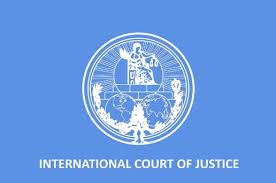General Principles of Law Judicial
1. Kinds of Treaties
Treaties are formal agreements between states or international entities. They vary based on purpose, parties, and formality.
a) Based on Parties
Bilateral Treaties: Between two states.
Example: Treaty of Friendship between two countries.
Multilateral Treaties: Between three or more states.
Example: United Nations Charter.
b) Based on Subject Matter
Peace Treaties: End hostilities (e.g., Treaty of Versailles).
Trade Treaties: Regulate trade relations (e.g., NAFTA).
Alliance Treaties: Military cooperation agreements.
Environmental Treaties: Concerning climate, pollution (e.g., Kyoto Protocol).
Human Rights Treaties: Protect human rights (e.g., ICCPR).
Territorial Treaties: Deal with borders and sovereignty.
c) Based on Legal Effect
Constitutive Treaties: Establish international organizations (e.g., UN Charter).
Law-Making Treaties: Create general rules (e.g., Geneva Conventions).
Contractual Treaties: Specific agreements binding only parties involved.
d) Based on Duration
Perpetual Treaties: No fixed end (e.g., friendship treaties).
Fixed-Term Treaties: Last for a specified period.
Temporary Treaties: Cover temporary arrangements.
2. General Principles of Law
General principles of law are fundamental legal concepts recognized by civilized nations, applied in international law to fill gaps where treaties or customary law are silent.
Importance:
They help maintain consistency and fairness.
Recognized under Article 38(1)(c) of the ICJ Statute as a source of international law.
Examples:
Good Faith (Bona Fides): Parties must act honestly.
Estoppel: Prevents a party from going back on its word.
Res Judicata: A matter already judged cannot be re-litigated.
Equity: Fairness in decision-making.
Legal Personality: Recognition that entities can hold rights and duties.
Due Diligence: Obligation to take reasonable care.
Pacta Sunt Servanda: Agreements must be kept.
3. Judicial Principles in International Law
Judicial principles guide how courts and tribunals interpret and apply international law.
Key Judicial Principles:
a) Interpretation of Treaties
Governed by Articles 31-33 of the Vienna Convention on the Law of Treaties (VCLT):
Article 31: Treaties must be interpreted in good faith, in accordance with ordinary meaning in context and purpose.
Article 32: Supplementary means can be used if ambiguity arises.
Article 33: Treaties in multiple languages are equally authentic.
b) Precedent (Stare Decisis)
Not formally binding in international law but courts often follow previous decisions for consistency.
c) Principle of Sovereign Equality
All states are equal before international law.
d) Principle of Pacta Sunt Servanda
Treaties are binding and must be performed in good faith.
e) Non-Intervention
States should not interfere in internal affairs of other states.
f) Rebus Sic Stantibus
A fundamental change of circumstances may release states from treaty obligations.
Summary Table:
| Topic | Explanation | Examples/Reference |
|---|---|---|
| Kinds of Treaties | Bilateral, Multilateral, Peace, Trade, etc. | Vienna Convention, NAFTA, UN Charter |
| General Principles | Fundamental laws common to civilized nations | Good faith, estoppel, pacta sunt servanda |
| Judicial Principles | Interpretation rules, fairness, precedent | Articles 31-33 VCLT, ICJ decisions |












comments